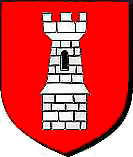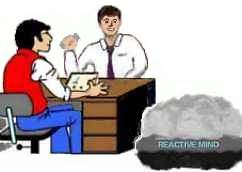
|
C/S Tools: |

|
C/S Tools: |
Know Before You Go
The Grade Chart is the basic program you want the pc to do. It is laid out in a fashion to make a natural succession of steps to go through for almost all pc's. The C/S still needs to know if the pc is ready for the next Grade or has some special situation or problem that needs to be looked at first. The Grades aren't "one size fits all". But they do cover the basic skills and abilities any thetan needs to improve on and master in order to improve his state of beingness. It's much like "Reading, Writing and Arithmetic" are for school children you could say.
A skilled C/S knows that he has to maintain two-way communication with the pc's case. He does that through the auditor and folder. He can order special interviews, etc. but would never discuss the pc's case with the pc nor do interviews of the pc personally. That's Ivory Tower Rule. But he still has to be sensitive and responsive to the pc much as the auditor has to be sensitive to his individual pc's special problems and unique situation. A pc who feels his special situation and needs are duplicated and understood feels safe and in good hands. He feels the maxim of Auditors Trust has been expanded. Now it is Auditor plus Pc plus C/S is greater than the Pc's Bank. There is a strategist behind the scenes that makes the pc's Bank look the size of a pea.
|
C/S plus Auditor plus PC |
 |
 |
Basic Tools - Data
A basic Maxim the C/S operates on is "Know before you go!" A C/S
operates on data. He makes sure he has enough data to understand and resolve a
case. He makes sure he has enough data about his auditor's weak and strong sides
to only order actions he can do; but he makes sure the auditor's skills are
adequate to handle the case. He does that by insisting the auditor is drilled
into shape to do the processes needed.
If the C/S does not have the clear data he needs to write the next C/S he can have the pc interviewed. For more audited pc's with several folders the folders should be studied. This is often done by an auditor with some time on his hands. Such an auditor can do a so-called Folder Error Summary (FES). This is a study, where the FES'er (auditor) goes through all the earlier auditing reports and lists out difficulties the pc has had and what was done and not done and whether actions problems got completed and resolved. Of course, the FES'er would also list any out-tech applications administered to the pc. So the C/S gets data from earlier auditing and from interviews. He can even ask the pc's mother if any normal channel does not seem to give him enough answers.
The most common way to get fresh data is a D of P interview. "D of P" means a Director of Processing. He is the person in charge of the practical aspects of auditing in a larger office or organization. But any available auditor or Meter operator should be able to do such a metered interview.
D of P Interview
The C/S usually orders a metered
interview to get fresh data. This interview is designed to get data about
specific questions and is not auditing. It is not taken to EP, but is simply
done to get data for the C/S. The D of P is not trying to F/N the
questions, but would indicate any F/N's occurring. It's done with TRs in and
without evaluation or invalidation, but the D of P is interested in data
and can ask additional questions to get them. The interviewer is not strictly
bound by the Auditors Code - such as pc being fully sessionable or flattening
questions, etc. He simply uses his questions, his curiosity and the Meter to
find some charged areas that later can be handled in formal auditing.
The pc has not been audited for a while. His last action was attesting to Grade 1. The interviewer is given a set of questions by the C/S to be answered. The C/S basically wants to know what possibly needs to be handled before pc is put onto Grade 2.Example of metered Interviews
Example 1:
Make sure to get all the data available and note them down with reads."
From this interview the C/S can design a little set-up program before the pc is put on Grade 2. Let's say the pc has an upset at work. It gave a Blowdown in the interview and came up on several of the questions asked. The auditor could address this area with rudiments, a Prep-check or an L1C. Let's say the C/S has most confidence in his auditor being able to fly the ruds; he would order:
"Do the following:
Regarding your work___
Do you have an ARC break?
Do you have a problem?
Has a withhold been missed?
Have you committed an overt?
Do you have a withhold?Folder back to me."
Let's say the pc is really happy after this session. He is F/N VGIs and ready for his next Grade. The C/S will order the auditor to start Grade 2 on the pc.
Example 2: The pc has had an accident. The C/S wants to know what exactly is going on. He first orders a metered interview:
"R-factor the pc: "I am not auditing you".
Ask pc the following metered questions, noting any significant reads:
"How are you doing?"
"How are you doing physically?"
"Tell me about the accident."
"Recently, have you been given a rough time?"
"How was your recent auditing?"
"Anything you want to communicate to the C/S?"
Make sure to get all the data available and note them down with reads."
The interview reveals the accident was minor, but the pc has some bruises and pains in the leg. Also the pc had attention on recent auditing that included Listing and Nulling.
According to "The worst tangle" any possibility of out-list should be addressed first.
The pc is ordered to rest up well and come in for session the next day. The auditor is given the following C/S to do:
"Do not fly ruds.
1. Do an L4BRB on the recent list, "Who or what would eat apples?"
Assess L4BRB method 3 (taking up reads as they occur) and keep handling the list until pc is F/N VGIs on it.
2. Do a touch assist on pc's leg to VGI's
The C/S decided that the out-list was the probable cause of the accident and there was no reason to check pc out for being PTS (beyond the question "recently, have you been given a rough time?") as pc had never been PTS before.
If a C/S instruction is not done within a week and a program is a month or more old it should not be done without fresh data. They are too old to be valid. The pc's situation can have changed in the meantime. Maybe his girlfriend left him, he got fired, had an accident or whatever. The pc should be given a short metered interview and an updated C/S or program should be written up taking this interview into account.
Such an interview is usually done on the C/S' instructions, but strictly speaking it does not require C/S OK. If the D of P sees the pc isn't doing well he can on his own initiative put the pc on the Meter and interview him. The interview should be done by somebody else than the auditor (it is never done by the C/S). After all, part of what can be wrong is what the auditor is doing in session and pc should be free to tell about it.
A routine interview to update a C/S or program would simply cover pc's daily life, ask to his past auditing and the like.
Example 3: Pc has been off auditing for two weeks due to his job. Now he is back to continue Grade 0. The interviewer could ask:
1. How are you doing?
2. How is your job going?
3. How is your marriage going?
4. Any problems or situations in life?
5. How was your past auditing? (any problems? Any wins?)
6. Anything you want to say to C/S?
As usual, the questions are prepared in advance, but the
interviewer can dig to get all the info; the interview should get enough data.
It is different from processing because you want information with Meter
reads, not cognitions or EP's. Whatever comes up will then be handled in
auditing.
It is not auditing. It is started with the R-factor: "I am not auditing
you". But the D of P would not evaluate for or invalidate pc, but simply
ask enough questions and get all needed information. The interview is sent to
the C/S who now can write a fresh C/S for the pc.
(See also examples under Life Repair).
Examiner Statements
Another way the C/S gets information from and about the pc is through the
Examiner. In Pc Hat the pc was informed this way: "If something out of the
ordinary happens outside session that the pc feels it is important for the
auditor to know, he can go to the Examiner and tell it to her. She will ensure
it gets in the folder and that the auditor (and case supervisor) will know. It
can be illness, accidents, unhandled or new problems; but also unexpected wins
and successes. In case the pc feels bad about earlier auditing or a sudden
situation in life, it becomes high priority for the auditor to handle it and he
should do so within 24 hours." So this is another way the C/S "knows
before he goes".
PC information Sheet (White Form)
The pc
Information Sheet is another way the C/S gets basic information. This
interview form is only used rarely. It is used on beginning pc's and if pc's
have not had auditing for years. It is also used on Engram Clearing as there is
a special handling as part of that level (ST5).
This Pc Information Sheet gives the C/S a lot of basic data to work with. What does the pc do for a living? What people are close to the pc? Does he have any health condition? Pains and aches? What is the pc's drug history and medical history? What is his history with earlier practices? How old is the pc?, etc., etc.
Summary
"Know before you go" is how the C/S makes Auditors Trust even
stronger. A pc who knows that all his special problems and complaints are
listened to and understood by the C/S as well is a pc who knows he is in good
hands. The tools the C/S uses are D of P interviews, folder study, Examiner
statements and Pc Information Sheet. Seeing the problem the C/S uses his
knowledge of the technology and his right to insist upon flubless auditing by his
auditors to make things go right. He makes sure his auditors quickly get up to
speed on basic auditing and how to run the process needed and have any
complaints, the pc has, handled and out of the way so their pc's can move safely
and surely up the Grades.
|
Home Search Level 0 Level 1 Level 2 Level 3 Level 4 Level 4Pro Level 5 C/Sing Solo |
|
|
| Tech terms | Scales | Axioms | Drills | Checksheets | Processes | Prep. lists | C/S terms | C/S tool | Grades | Cramm | Points | KTW | Online | |